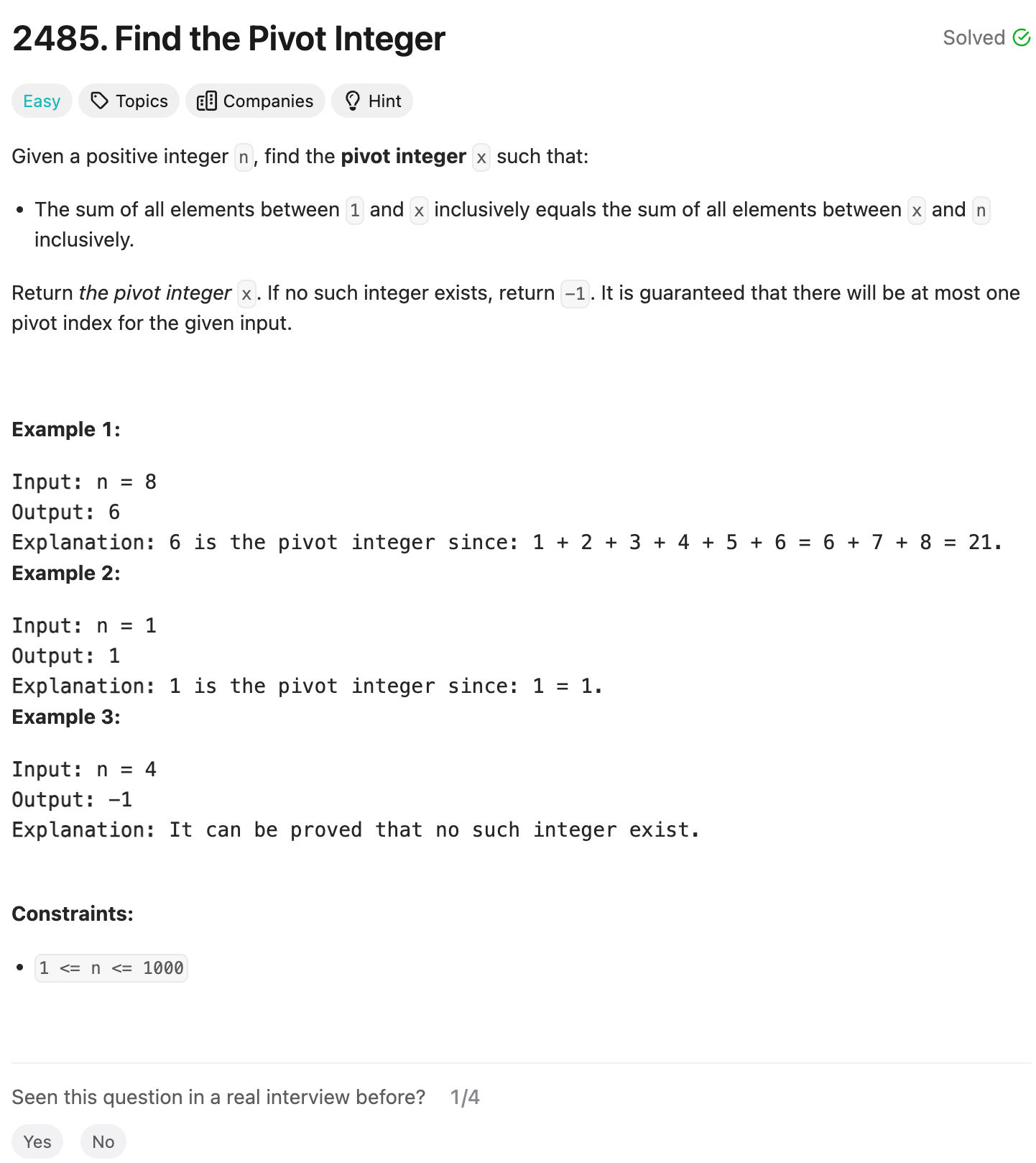Problem of The Day: Find the Pivot Integer
Problem Statement
Intuition
My initial thought is to iterate through the integers, keeping track of the current sum and comparing it with the sum of the remaining integers on the right.
Approach
I’ll use a simple loop to iterate through the integers from 1 to n. At each step, I’ll update the current sum and check if the remaining integers on the right have the same sum. If I find such a pivot integer, I’ll return it. If no pivot integer is found, I’ll return -1.
Complexity
-
Time complexity: O(n)
-
Space complexity: O(1)
Code
class Solution:
def pivotInteger(self, n: int) -> int:
curr_sum = 0
total_sum = sum(range(n + 1))
for i in range(1, n + 1):
curr_sum += i
if total_sum - curr_sum + i == curr_sum:
return i
return -1
Editorial Solution
Approach 2: Two Pointer
class Solution:
def pivotInteger(self, n: int) -> int:
left_value = 1
right_value = n
sum_left = left_value
sum_right = right_value
if n == 1:
return n
# Iterate until the pointers meet
while left_value < right_value:
# Adjust sums and pointers based on comparison
if sum_left < sum_right:
sum_left += left_value + 1
left_value += 1
else:
sum_right += right_value - 1
right_value -= 1
# Check for pivot condition
if sum_left == sum_right and left_value + 1 == right_value - 1:
return left_value + 1
return -1 # Return -1 if no pivot is found
- Time complexity: O(n)
- Space complexity: O(1)
Approach 3: Binary Search
class Solution:
def pivotInteger(self, n: int) -> int:
# Initialize left and right pointers for binary search
left, right = 1, n
# Calculate the total sum of the sequence
total_sum = n * (n + 1) // 2
# Binary search for the pivot point
while left < right:
# Calculate the mid-point
mid = (left + right) // 2
# Check if the difference between the square of mid and the total sum is negative
if mid * mid - total_sum < 0:
left = mid + 1 # Adjust the left bound if the sum is smaller
else:
right = mid # Adjust the right bound if the sum is equal or greater
# Check if the square of the left pointer minus the total sum is zero
if left * left - total_sum == 0:
return left
else:
return -1
- Time complexity: O(log n)
- Space complexity: O(1)
